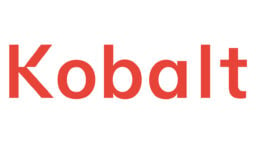The trouble with trying to do something revolutionary is that it often poses more questions than answers.
The global music industry was left a bit stunned by Kobalt’s latest move earlier this week.
Many of the company’s peers in music publishing share its frustration with the commissions and extra deductions they see removed by collection societies in territories across the globe.
In response, these companies have gradually applied pressure on these CMOs to act more collectively.
The biggest attempt to make this happen, of course, was the Global Rights Database, which collapsed last year seemingly due to the ultimate unwillingness of some CMOs to invest.
But patiently lobbying and influencing isn’t really Kobalt‘s way.
So, instead, it’s bought a collection society.
Just gone out there, and bought one.
Kobalt’s purchase of US-based mechanical society AMRA, it says, has resulted in the world’s first ‘global, direct, digital mechanical and performing rights society’.
Publishers now have a single, worldwide option to collect royalties from the likes of Spotify and YouTube – wiping out the multi-territory inefficiencies so widely criticised by the industry beforehand.
But with Kobalt such a significant player in the publishing world, can its rivals trust the company to collect their royalties responsibly?
And who, exactly, does Kobalt want to sign up to AMRA?
MBW grilled Kobalt boss Willard Ahdritz and COO James Fitzherbert-Brockholes to find out:
You say that ‘the music industry can no longer afford to spend $5 collecting $1’. How widespread is this kind of inefficiency amongst the current worldwide publishing CMO network?
Willard Ahdritz: Overall, we know that it is very difficult and costly to process the enormous volumes of data that individual DSPs are generating. You can see 500 billion royalty lines from one DSP per month. It’s very complex.
We believe that we can significantly increase collection from existing usage, as we have seen with our uplift on Spotify in Europe [since collecting direct], and we can build a significantly bigger pie – creating revenue and value on a global scale.
We expect an increase of [collection revenue] of two to three times, immediately, from certain territories with AMRA.
“We expect an immediate increase of two to three times from certain territories with amra.”
Dealing with inefficiencies has always been our mission. In 2001 I had a business plan for Kobalt, and phase two was about these high volumes [of data] – how you can’t reach efficiency processing through 100 different places in the world.
You need structural change to make this process [more] profitable.
We see 50%-60% transaction costs currently in the industry – that’s caused by multiple, local structures.
James Fitzherbert-Brockholes: Part of the problem is we don’t really know [how inefficient the CMOs are right now].
All we know is that [the money getting to songwriters] is not enough. And where we’ve previously changed the structure as Kobalt, revenue has increased very significantly.
In the [territories] where direct structures haven’t been put in place, we believe their capabilities and technology struggle even more with the volume provided by these services.
How do you anticipate this will go down with the DSPs – what reaction are you getting from the likes of Spotify and YouTube?
Ahdritz: Overall I’m very pleased.
After Taylor Swift we have a big discussion in this industry: where is the money? How much is actually being paid out by [streaming companies] – and why is there so little money flowing out the other end?
Today there’s a significantly bigger interest in how to repay clients properly.
Kobalt was designed for this movement from day one.
Fitzherbert-Brockholes: It’s fair to say that those that understand that trust in the music industry is vital – trust that the money gets back to the writers – embrace this as an idea.
Not everyone is quite so far-sighted to understand that strategically, that [attitude] is very important. But many of them are.
Did the fall of the GRD provide the impetus to do this? It was such a colossal failure on behalf of the global industry…
Fitzherbert-Brockholes: It’s difficult to know quite where it could have gone.
We certainly invested a lot of time and effort into trying to make that happen and been what it could have been.
If it progressed along the path we might have seen results. But this was a necessary solution.
Ahdritz: In my opinion, whatever glue or fix [GRD would have provided], it would not come to the level of capacity of the technology Kobalt has developed.
We provide a fantastic, transparent global service.
We are here to support all initiatives like GRD to improve transparency in the industry.
But our own service is unique – both in its approach, its technology and our willingness to maximise cashflow for clients.
You’ve employed PWC to help ensure you will keep AMRA and your own publishing operation separate. What assurances can you give MBW readers that you won’t peek at sensitive data?
Ahdritz: Today, Kobalt takes care of over 500 music publishers – [these partners] provide 70% of our total revenue. We are already an industry platform!
None of our clients are concerned. Otherwise they wouldn’t stay – they can leave if they want.
“We take care of over 500 publishers. We are already an industry platform!”
We have appointed PWC to rubber-stamp our operation as a third-party; to show Kobalt clients that we are following strict protocol around data separation and security. I don’t see this as an issue.
I wouldn’t be surprised if we saw a major come to AMRA as a client within 12 months.
Really?!
Ahdritz: Of course. We are creating an industry platform for all rights-owners and clients.
The more we can drive transparency and efficiency to build the music industry on a global scale, it benefits everyone.
James, would you echo Willard there: telling the likes of the majors and BMG – the world’s biggest publishers – to consider signing up?
Fitzherbert-Brockholes: Absolutely. We believe this is going to provide the best services and solutions to deal with this part of our business.
It can only work better if more people join in.
That’s why we’ve put an enormous amount of effort into building a structure which is accessible to all.
This isn’t just for our benefit – it can help the whole industry move forward.
Does this investment into AMRA mean any slowdown in activity for Kobalt in your label services, Neighbouring Rights or publishing operations?
Ahdritz: No. Kobalt [revenue] has been growing by 40% per annum over the last ten years. We are quite used to monitoring growth vs. our quality of services.
We have said ‘no’ to 75% of [new] business opportunities to make sure we deliver an even better service to our clients every year.
In 2005 at Midem, I had my first coffee and discussed the need for a global commercial society to deal with the issues that were going to come, and to make the investment in technology required.
“We have invested $126m in technology so far. that’s hard for non-profits to do.”
We have invested $126m so far in technology. That is substantially hard for non-profit organisations to do – as is the willingness to be truly transparent.
We have a great team employed at AMRA, including the ex-Chairman of CISCAC and the ex-MD of ICE – these guys are second to none in terms of working on global databases.
That combines with the 300 people Kobalt has working in nine offices across 33 countries.
We have been thinking and planning this move for a long time. We acquired AMRA last July, and we have waited until everything is in place.
We announce that we are having a baby boy – not that we’re planning to have one!
Some might suggest that not-for-profit organisations are actually, by nature, more accountable than commercial entities…
Ahdritz: It is very clear. Historically, free market and competition has always created a great service for consumers or clients.
Let’s wait and see the results we will deliver for our clients. That will do our talking for us.
“Kobalt is a commercial company – but it’s a completely transparent business.”
Kobalt has already shown that just because you’re non-profit doesn’t mean you’re delivering the best services.
Kobalt is a commercial company but it’s a completely transparent business, based on maximising value for songwriters and rights-owners.
Fitzherbert-Brockholes: If [AMRA] improves the focus in the marketplace on the the need for transparency, and encourages others to realise its importance, then that’s a fantastic thing.
Simple question: Why put yourself through this? This is going to be hard work, you’ll get some mud thrown at you. And in certain parts of the world, you’re going to be taking on some questionable characters…
Ahdritz: The spirit and passion of doing what is the right thing and building is why we started Kobalt.
When we began, people said we were idiots. People said it would not work.
Then there was a second phase, when everyone denied that we could do what we do and talked bad about us.
Now we are seeing the third phase in publishing: everyone saying they can offer transparency and suddenly have a portal.
“First people said we were idiots. Then they talked bad about us. Now everyone says they offer transparency.”
I don’t know if they’re delivering, but that’s certainly what they walk around and say.
I’m 100% convinced we will see the same pattern now [in collection societies]. Denial [of data] doesn’t work – it’s stupid.
We will see how fast it takes the world to say, actually, morally, this is the right way to go forward if we want to have a healthy music industry.
Fitzherbert-Brockholes: If we help improve the self-evident problem of rights-owners not being connected to users and understanding how their music is being used, that has to help everyone.Music Business Worldwide




